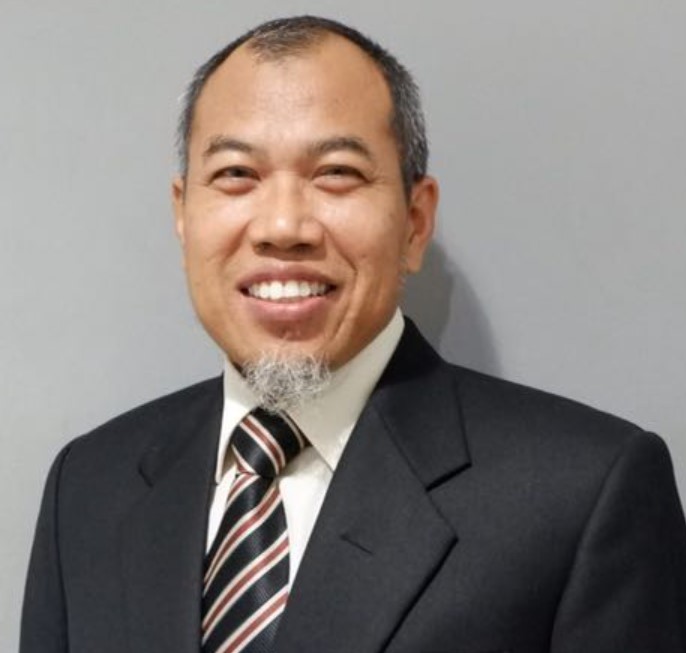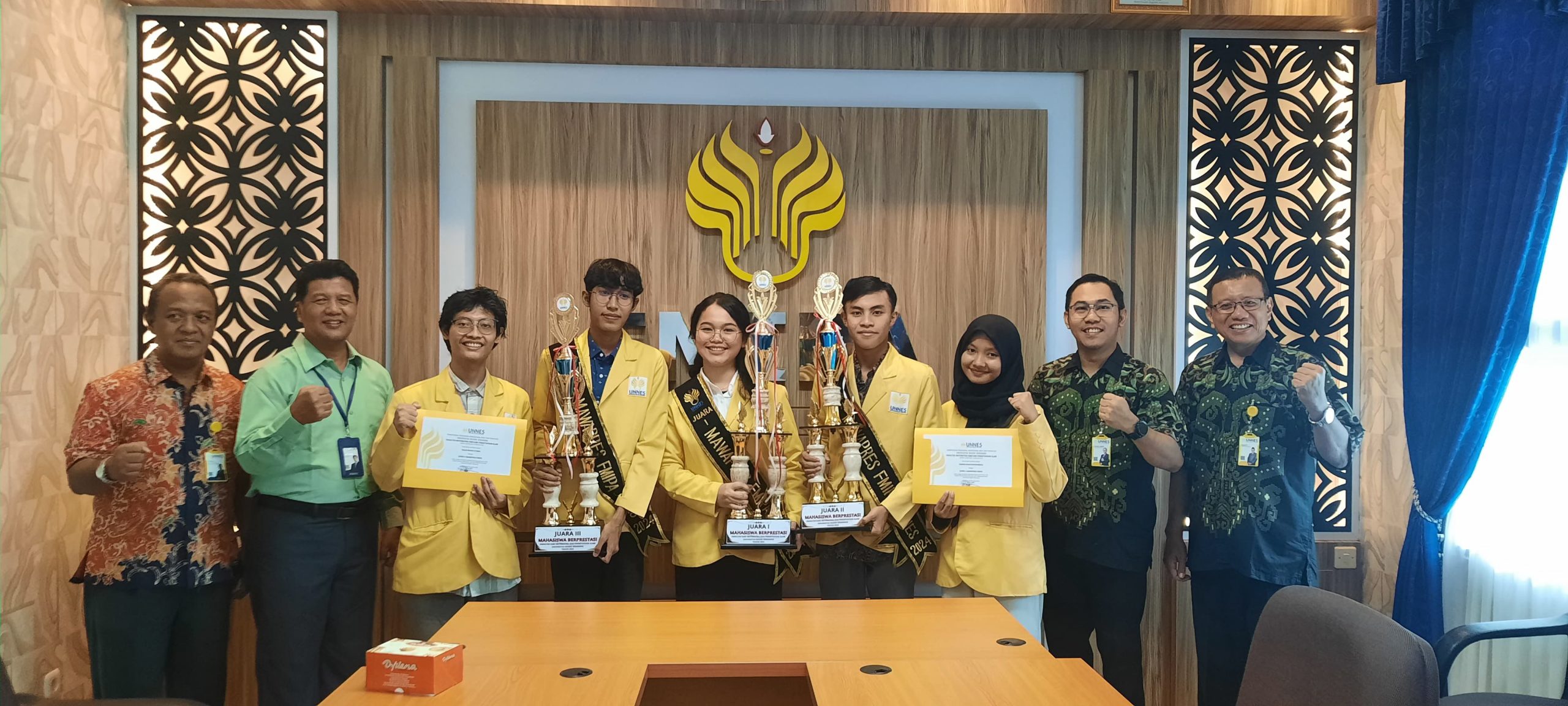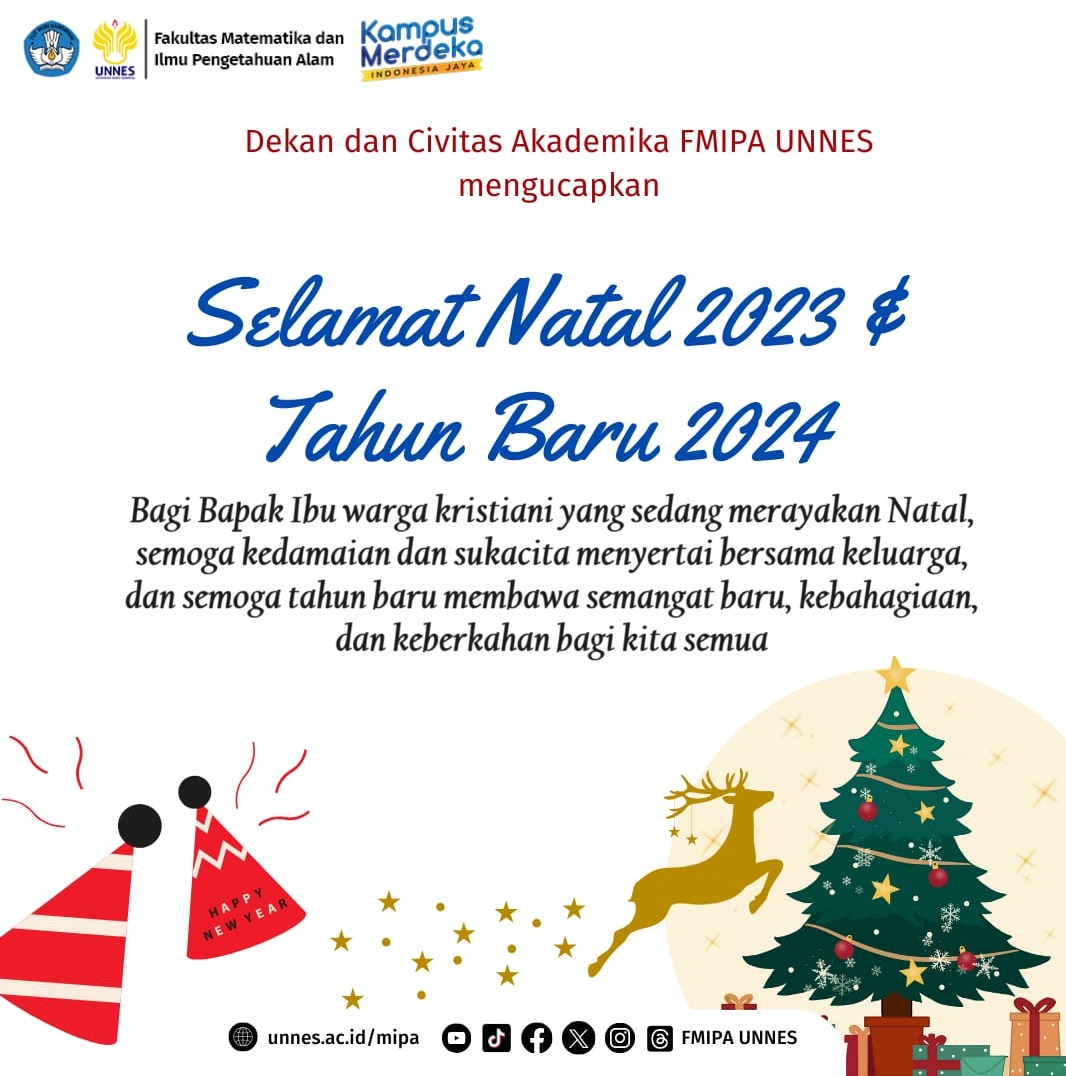
Prof. Dr. Sarwi, M.Si.
Professor in the field of Physics Education at the Faculty of Mathematics and Natural Sciences, Semarang State University (UNNES)
Introduction
Education in Indonesia still requires efforts and struggles to catch up with other advanced countries. Science and digital technology have rapidly developed in the era of society 5.0. The advancement of science and technology has had an impact on the demands placed on society to keep up with revolutionary changes. The essence of societal change requires new knowledge, new skills, and substantial responsibility towards the evolving values in society. The fulfillment of these knowledge and skills needs can be achieved through education.
Quality and holistic education equips learners with knowledge that covers various fields and multi-skills. The integration of knowledge is not merely combining religious and general knowledge, but it is an effort to unify religious knowledge derived from revelation and general knowledge as the findings of human research/thought. The integration of knowledge must adhere to the principles of not diminishing the greatness of revelation and not excluding humans as creations of Allah SWT. The purpose of integrating various disciplines is to minimize the dichotomous view of knowledge understood and achieved by scholars. The positive impact for institutions is the production of alumni who possess moral and religious values, thereby producing graduates who are competent in intellectual, moral, skillful, and spiritual aspects.
Integration of Character and Religious Values
The education needed in the present era is an educational institution that instills noble character to develop the positive potential of learners, both in Basic and Secondary Education, as well as Higher Education. The narrow view of education that only focuses on intellectual and physical skills indicates an inability to address attitudes and spirituality. The separation between what is considered religious and non-religious, sacred and profane, otherworldly and worldly, is known as a dichotomous perspective.
A more fundamental issue is the prevailing belief among the younger generation that religious knowledge and general knowledge are two separate (fragmented) entities that need to be reestablished. The viewpoint that religious and non-religious matters (general) should be kept separate (dichotomous) is known as secularism. The dichotomous education system has not provided a solution to the need for comprehensive education to achieve the ideal human being (insan kamil). The term integration emerges in the field of education with the hope of providing a solution to the partial and separate nature of educational dilemmas. Integration can be understood as the blending of different components into a unified whole. Integrating character and Islamic values in education means incorporating character and religious values (Islam) into the knowledge or subjects, creating a comprehensive knowledge structure within the learners.
In-depth study of the basic concepts of knowledge derived from the Quran will lead to the discovery of an ethos that underlies the development of social sciences, economics, natural sciences, culture, and religion. The philosophical basis for the development of knowledge is presented in Figure 1.

Figure 1. Philosophical Basis of Knowledge Development
Islamic Philosophy and Philosophy of Science
The interaction between philosophy and science gives rise to the philosophy of science, which is a philosophy that considers science as its subject matter. The interaction between Islam and the philosophy of science results in Islamic philosophy of science. Islamic philosophy is based on Din al-Islam, rooted in Islamic faith (aqidah) that revolves around the concept of Tauhid (Oneness of God). God has manifested His greatness and magnificence through His signs, known as ayat Kauniyyah (the works of Allah), which encompass humans and the universe, and ayat Qur’aniyyah (the words of Allah), which are the verses of Allah revealed in the Noble Quran. The study of ayat Kauniyyah and ayat Qur’aniyyah is considered an act of worship (amal saleh) when performed sincerely and with the intention to seek the pleasure of Allah.
The interaction between Islamic philosophy and science, based on the Quran and Hadith, gives rise to Islamic science (islamical science). The characteristic of Islamic science is its reliance on the Tauhid (the concept of the Oneness of Allah), which includes the values of Din al-Islam. In line with the statement, the theory of Islamic science is theistic science, which combines scientific work (physics) and metaphysics with theology. Islamic science can be produced or discovered by scientists from various beliefs or religions in the world, as long as it is based on the content of the Quran and Hadith. The Holy Quran, revealed 1400 years ago, already proclaimed the theistic science of natural phenomena in the ocean, as depicted in Figure 2.

Image 2. The Strait of Gibraltar is the meeting point of two different types of seawater (different densities, salinity levels), they never merge.
Meaning: He let the two seas flow freely, they meet each other, and between them, there is a barrier that they do not transgress. So, which of the favors of your Lord would you deny? From both of them emerge pearls and coral (Quran, Ar-Rahman, 55: 19-22).
Integration of Islamic Character in the Field of Education
Based on the analysis of literature reviews and several studies, an educational system based on Islamic values called Integrated Islamic Education Institutions (LPIT) has been developed. LPIT gives rise to Integrated Islamic Schools (SIT) with a full-day school system, which is an alternative solution to the concerns of the community who desire institutions that embody Islamic values. The curriculum implemented in SIT consists of a combination of general subjects and religious subjects in a proportional manner. The competencies emphasized in the integrated curriculum include mastery of kauniyyah (natural and social sciences), qauliyyah (religious sciences), fikriyyah (cognitive skills), ruhiyyah (affective skills), and jasadiyyah (psychomotor skills). Education that adopts a full-time school system has several advantages, such as: a) acquiring a structured learning and worship experience, and b) developing high discipline and independence. The implementation of full-time school aims to maximize students’ time efficiency, allowing them to engage in effective learning, worship, extracurricular activities, and community service activities together with teachers or religious instructors.
Integration of “Down-to-Earth” Character, not “Sky-high” Character
The character of students also receives attention from the government. The character of students can be classified into two types: positive character (mahmudah) and negative character (madzmumah). According to Lickona, it is important to instill good character in schools through moral knowing, moral feeling, and moral action. These three components will guide individuals to develop habits of thinking, habits of the heart, and habits of action, directed towards God, oneself, others, the environment, and the nation. There are four types of character education that have developed in Indonesia: religious-based, culture-based, environment-based, and humanity-based.
Character education is based on the philosophy that education is a process of shaping a person’s complete personality. A complete personality is formed when students internalize values from symbolic, empirical, ethical, and aesthetic aspects. The internalization of values from: 1) the symbolic aspect can be done through the subjects of Bahasa Indonesia and Mathematics. The core value to be internalized through the Bahasa Indonesia subject is to appreciate the importance of communication. Mathematics can internalize quantitative values (numbers) that are used to interact with others. 2) the empirical aspect through the subjects of Science and Social Studies, as well as empirical sciences. The core values brought through these subjects are logical thinking and scientific thinking to solve everyday problems. 3) the ethical aspect through moral education and character education subjects, aimed at helping students appreciate ethics so that they can choose moral behavior. 4) the aesthetic aspect through arts and skills subjects, with the core value being the appreciation of beauty, aiming to cultivate an appreciation for beauty in students. The integration of Islamic character and values into subjects, especially at the primary and secondary school levels, is expected to shape the students’ virtuous or positive character (mahmudah).


Author Profile: Prof. Dr. Sarwi, M.Si. is a professor in the field of Physics Education at the Faculty of Mathematics and Natural Sciences, Semarang State University (UNNES). He holds a Bachelor’s degree in Physics Education from IKIP Semarang, followed by a Master’s degree in Physics from Gadjah Mada University (UGM), and a Doctoral degree in Science Education from Indonesia University of Education (UPI). Among the courses he teaches are Waves, Educational Research Methods, Learning Theories, and Ethnoscientific-based Science Learning. He is engaged in research and community service in the fields of Physics/Sience Learning Innovations based on 21st-century approaches, Integrated Science based on Ethnoscientific approach, development of teaching materials and assessment in Physics. Among the books he has written are Educational Research: Theory and Application; Earth Science and Phenomena; Science Assessment Oriented to the Next Generation Science Standards (NGSS); and Integrated Science based on Ethnoscientific approach. He is actively involved in journal editing and article writing, as well as national and international seminars. The author is also actively involved in community organizations, including serving as the Chairman of the Sampangan Semarang Education Foundation, among others.





